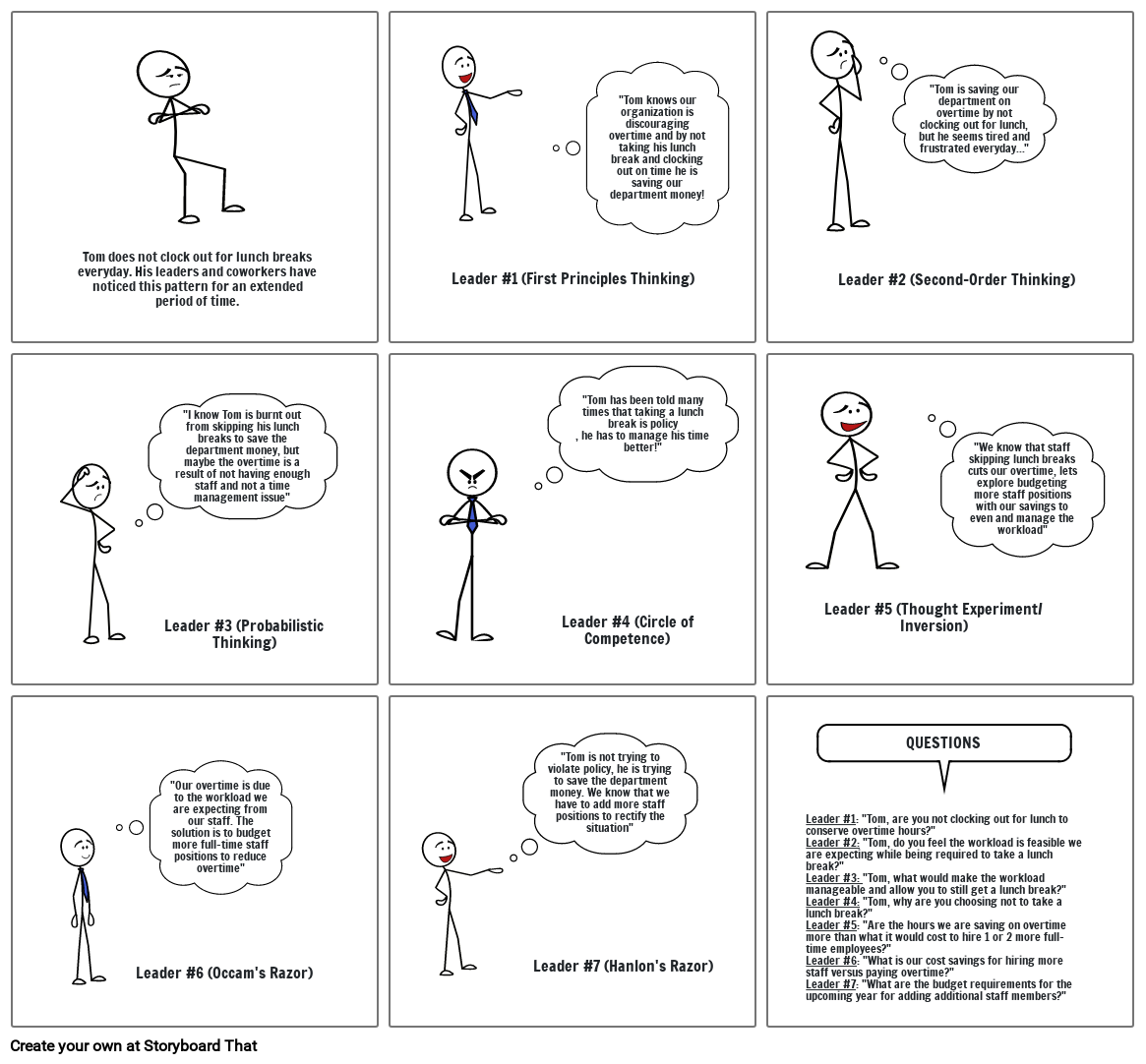Storyboard 1

Siužetinės Linijos Tekstas
- Tom does not clock out for lunch breaks everyday. His leaders and coworkers have noticed this pattern for an extended period of time.
- Leader #1 (First Principles Thinking)
- "Tom knows our organization is discouraging overtime and by not taking his lunch break and clocking out on time he is saving our department money!
- Leader #2 (Second-Order Thinking)
- "Tom is saving our department on overtime by not clocking out for lunch, but he seems tired and frustrated everyday..."
- "I know Tom is burnt out from skipping his lunch breaks to save the department money, but maybe the overtime is a result of not having enough staff and not a time management issue"
- Leader #3 (Probabilistic Thinking)
- "Tom has been told many times that taking a lunch break is policy, he has to manage his time better!"
- Leader #4 (Circle of Competence)
- Leader #5 (Thought Experiment/ Inversion)
- "We know that staff skipping lunch breaks cuts our overtime, lets explore budgeting more staff positions with our savings to even and manage the workload"
- "Our overtime is due to the workload we are expecting from our staff. The solution is to budget more full-time staff positions to reduce overtime"
- Leader #6 (Occam's Razor)
- "Tom is not trying to violate policy, he is trying to save the department money. We know that we have to add more staff positions to rectify the situation"
- Leader #7 (Hanlon's Razor)
- QUESTIONS
Sukurta daugiau nei 30 milijonų siužetinių lentelių

